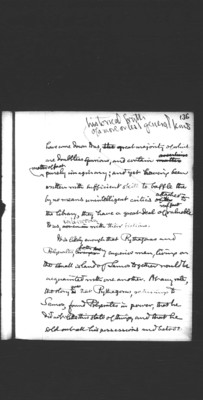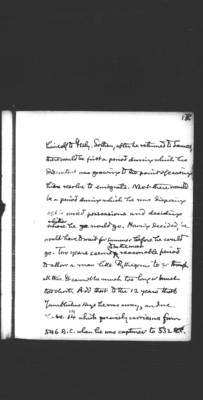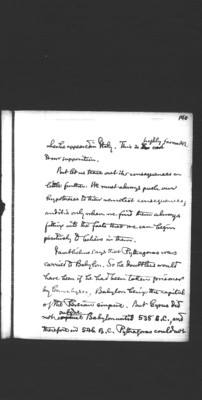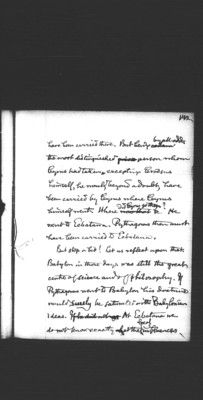Pages
76
134
critical art of detecting forgeries on the other hand. To forge a book was not easy. The Greeks, with slaves to do all their drudgery even of an intellectual kind, polished their writings to a point almost inconceivable to us; and to imitate a great literary writer in any long piece was quite impossible,— although philosophers might be imitated. But with a short letter, the case was different. All the forger had to do was to inform himself minutely of all that was to be known of a certain situation of a famous man and he could produce a letter which the librarians in Alexandria, while not perhaps fully believing in it, might yet not be willing to assume the responsibility of rejecting. In that way, a good many letters
77
136
have come down to us, the great majority of which are doubtless spurious, and contain matter of fact purely imaginary; and yet having been written with sufficient skill to baffle the by no means unintelligent critics attached to the library, they have a great deal of real historical truth of a more or less general kind valuable to us, interwoven with their fictions.
It is likely that Pythagoras and Polycrates, both very superior men, living on the small island of Samos together would be acquainted with one another. At any rate, the story goes that Pythagoras, returning to Samos, found Polycrates in power, that he did not like this state of things, and that he sold out all his possessions and betook
78
138
himself to Italy. So, then, after he returned to Samos, there would be first a period during which his discontent was growing to the point of causing his resolve to emigrate. Next there would be a period during which he was disposing of his varied possessions and deciding whither he would go. Having decided, he would have to wait for summer before he couold go. Two years seems to be the most reasonable period to allow a man like Pythagoras to go through all this. It cannot be much too long or much too short. Add that to the 12 years that Iamblichus says he was away, and we have 14 which precisely carries us from 546 B.C. when he was captured to 532 B.C.
79
140
when he appeared in Italy. This is highly favorable to our supposition.
But let us trace out its consequences a little further. We must always push our hypotheses to their remotest consequences; and it is only when we find them always fitting into the facts that we can begin positively to believe in them.
Iamblichus says that Pythagoras was carried to Babylon. So he doubtless would have been if he had been taken prisoner by Cambyses, Babylon being the capital of the Persian empire. But Cyrus did not subdue Babylon until 538 B.C., and therefore in 546 B.C. Pythagoras could not
80
142
have been carried there. But being by all odds the most distinguished person whom Cyrus had taken excepting Croesus himself, he would, beyond a doubt, have been carried by Cyrus where Cyrus himself went. Where did Cyrus go then? He went to Ecbatana.
But stop a bit! Let us reflect upon that. Babylon in those days was still the great centre of science and of philosophy. If Pythagoras went to Babylon his doctrine would surely be saturated with Babylonian ideas. At Ecbatana we do not know exactly what the local influences




